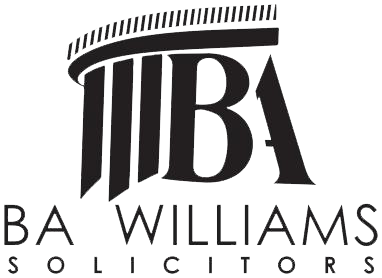This case focuses on allegations of undue influence in signing a declaration of trust, forgery in buying a property, and property ownership issues.
Background:
Mr. Cissé is a professional footballer who signed with Newcastle United in 2012. For several years, Mr. Diene has acted as Mr. Cissé’s agent in the UK and Senegal, their home country. As Mr. Cissé could not speak or read English when he arrived, he was “not financially sophisticated and, upon arrival in England, did not find management of his day-to-day affairs straightforward”.
Mr. Cissé has opened several bank accounts and acquired properties in England and Senegal with the collaboration and assistance of Mr. Diene. Mr. Diene had full access to each bank account. He also counted on Mr. Diene to invest in properties for his retirement, inter alia. One of those properties was 3 Riverside Lodge which was purchased in Mr. Cissé’s name and the leasehold title transferred in his name.
In some of the draft contractual documentation, Mrs. Diene was entered with Mr Cissé as a joint purchaser but, as they could not obtain a mortgage jointly, the property was only purchased in Mr. Cissé’s name. Mrs. Diene argued that he was holding it on bare trust for Mr. Diene himself, a claim which is contested by Mr. Cissé. In May 2017, another property was purchased at 16 Packsaddle Park solely in Mr. Cissé’s name. Mr. Cissé contends that, at the time, he knew nothing of this transaction and that his signature on the transfer instrument was forged, a claim which is denied by Mr. Diene. Again Mr. Diene contented that this property was held in trust for him, despite the lack of any declaration of trust to HM Land Registry. Mr. and Mrs. Diene took residence at 16 Packsaddle Park.
Those properties were then used as security for additional borrowing which Mr. Cissé contends he was unaware of. In May 2018, Mr. Cissé signed a declaration of trust while working in China. Mr. Cissé seeks an order setting aside the declaration of trust for undue influence, as he signed the document without properly understanding the nature or significance of the document and did so based on his trust in Mr. and Mrs. Diene who advised him to do so.
He now claims that Mr. Diene had not acted in his best interests. There were multiple issues about the use of Mr. Cissé's bank accounts and fraudulent loans which will not be explained further here. In January 2021, Mr. Cissé commenced proceedings regarding 16 Packsaddle Park. In 2023, the County Court ruled in favour of Mr. and Mrs. Diene that the property was held in trust and they were not trespassers. Mr. Cissé appealed.
Decision:
HHJ Halliwell set aside a declaration of trust that had provided sole beneficial ownership of two properties to Mr. Diene based on undue influence. Mr. Diene failed to rebut the presumption.
Regarding whether Mr. Cissé held 3 Riverside Lodge on trust, the Judge ruled that the case failed due to the absence of contemporaneous documents or compelling evidence. Indeed, the defendants could not produce any document in which the putative trust was declared prior to the declaration of trust itself. In the absence of convincing evidence that Mrs. Diene contributed to the initial purchase price, there was no room for a resulting or implied trust. There was also no evidential basis for a constructive trust.
Regarding 16 Packsaddle Park, the Judge found that Mr. Cissé did not sign or approve any of the relevant documentation for its acquisition. His signature on the relevant documents was therefore a forgery. Although he had not been personally aware of the transaction and the TR1 was a forgery, the legal estate in the property would be deemed to have become vested in him, under s58(1) of the Land Registration Act 2002 (LRA 2002), when his name had been entered as proprietor on the register.
The Judge dismissed the abuse of process claim made by the defendants. The Judge also requested that Mr. Diene provide accounts for the rents and profits of 3 Riverside Lodge. Another order was made regarding the bank account and the potentially fraudulent transactions.
Implications:
There will be some further hearings to determine outstanding matters, including costs. However, this decision makes it clear that a declaration of trust is not sufficient in itself when there is suspicion of fraud. Unlike the County Court which accepted the declaration at face value, the High Court looked at all the evidence and concluded that no prior trust existed.
Similarly, this case clarifies that a property bought with a forged signature, if then registered, will be under a person's name and will be regarded as that person’s property.




